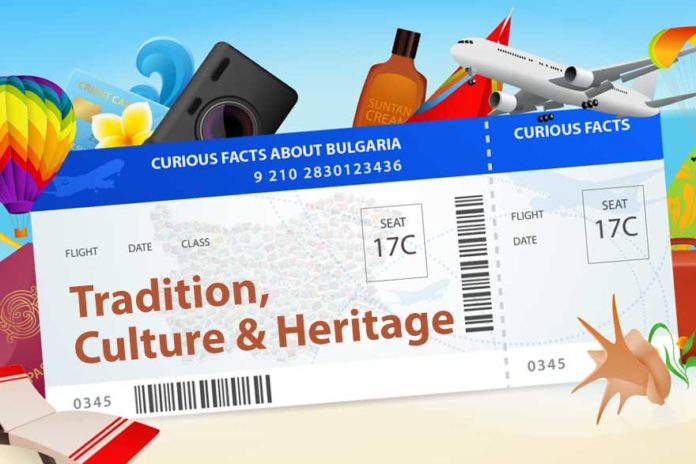Immerse yourself in Bulgaria’s rich history, traditions, and culture with these fascinating facts about the country. Bulgaria is a country full of surprises, from its unique customs and traditions to its impressive contributions to the world of technology and art. Whether you’re a lifelong resident or just starting to learn, these lesser-known facts will deepen your appreciation for this beautiful country.
Bulgarian Traditions and Celebrations
- In welcoming spring, Bulgarians exchange white and red yarn tassels on Baba Marta Day (Grandmother March Day) on March 1st.
- The annual Rose-picking Festival in Kazanlak features street processions, folklore concerts, art shows, and wine tastings.
- On Jordan’s Day, a priest tosses a cross into a river, blessing the retriever with health and happiness for the year.
- Name days are significant in Bulgaria, with celebrations at homes or restaurants for the saint bearing one’s name.
Cultural Identities and Heritage
- Bulgaria is the world’s second-largest exporter of rose oil, crucial for perfumery.
- The national instrument, the gaida (bagpipe), embodies Bulgaria’s musical soul.
- UNESCO recognizes several Bulgarian sites for their world heritage importance.
- The mythic figure Orpheus hails from Bulgaria, enriching its ancient legacy.
Unique Customs and Practices
- In Bulgarian culture, nodding means “no”, and shaking one’s head means “yes”, often surprising foreigners.
- Celebrations include the horo, a traditional folk dance highlighting Bulgaria’s communal spirit.
- The Bulgarian flag symbolizes peace, love (white), freedom, hope (green), and bravery, strength (red).
- Learn more about receiving and giving feedback in Bulgaria
Historical and Global Contributions
- Bulgaria’s contributions include the first printed book in Cyrillic script (1483), the initial computer concept in the 1940s, a solar-powered watch (1966), and pioneering 3D virtual reality technology.
- The Ivan Vazov National Theater in Sofia, operating since 1904, is Europe’s oldest continuous theater.
- The Cyrillic alphabet, created in the 9th century, marks a significant linguistic heritage celebrated worldwide.
Remarkable Facts and Figures
- Bulgaria has proudly stood as a continuous nation-state since its inception, and UNESCO validated it for having the most accurate calendar in 1976. Learn more.
- During World War II, Bulgaria safeguarded its Jewish citizens from Nazi deportation.
- The oldest processed gold, discovered in Varna, dates back about 7,000 years and showcases Bulgaria’s ancient civilization.
Superstitions and Beliefs
- Superstitions include avoiding gifts of knives to prevent relationship rifts, not whistling indoors to avert financial loss, and steering clear of pavement cracks to protect one’s mother from harm.
Artistic and Spiritual Legacy
- Rila Monastery’s intricate wooden cross and microscopic biblical scenes demonstrate unparalleled craftsmanship.
- Despite historical upheavals, the Rock-Hewn Churches of Ivanovo retain their spiritual allure, drawing visitors seeking medieval Bulgarian splendor.



